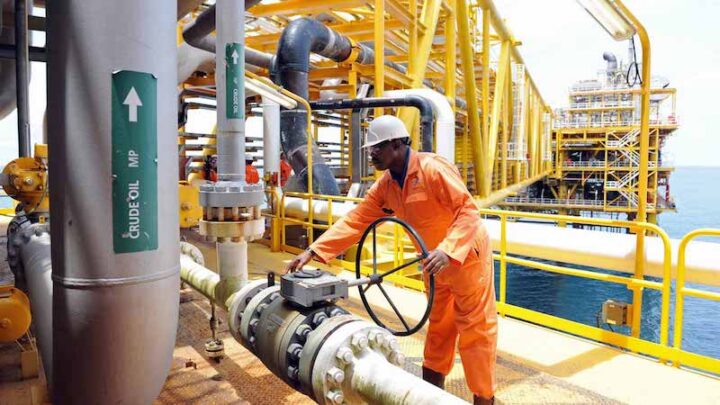In Q3/2023, Nigeria’s oil sector exhibited a growth rate of -0.85%, as revealed by the recently released Gross Domestic Product (GDP) report from the National Bureau of Statistics (NBS). Despite the negative figure, this marks an improvement compared to the corresponding quarter in 2022 and the preceding quarter, indicating positive trends in the industry.
Contrasting with the severe contraction of -22.67% in Q3/2022, the current growth rate signifies a significant recovery. Additionally, there is a notable 12.58% points increase from the previous quarter, Q2/2023, which registered a growth rate of -13.43%.
The report emphasizes that the real growth of the oil sector in Q3/2023, at -0.85% year-on-year, reflects a substantial improvement of 21.83% points compared to Q3/2022. On a quarter-on-quarter basis, the sector experienced a growth rate of 12.47% during this period.

In terms of production, the average daily oil output in Q3/2023 was 1.45 million barrels per day (mbpd), a notable increase from the same period in 2022 (1.20 mbpd) and the second quarter of 2023 (1.22 mbpd). This reflects a positive trend in production, with a growth of 0.25 mbpd from the previous year’s Q3 and 0.23 mbpd from Q2/2023.
Analyzing the oil sector’s contribution to the total real GDP, it constituted 5.48% in Q3/2023. While this is slightly lower than the corresponding quarter of 2022 (5.66%), it surpasses the contribution in the preceding quarter of 2023 (5.34%).
The overall fluctuations in the oil sector’s performance are accompanied by an upward trajectory in production and growth rates, showcasing positive developments in the industry.
Diving deeper into the insights provided by the GDP report, the improvements observed in the oil sector in 2023 can be attributed to various factors. The federal government’s strong commitment to improving living conditions in the Niger Delta region, historically plagued by crude oil theft, has positively impacted oil production.
Addressing living conditions in this region is deemed crucial in combating complicity in oil theft and enhancing oil production nationwide. Additionally, the government’s active engagement with both local and foreign oil operators has been instrumental, addressing challenges and facilitating the implementation of the Petroleum Industry Act (PIA).
The PIA’s implementation is pivotal for streamlining oil production processes and creating favorable conditions for efficient operations. Beyond PIA, the government’s engagement with oil operators extends to encouraging increased investments in upstream oil activities.
By fostering a conducive environment for investments, the goal is to attract more resources and expertise into the sector, ultimately bolstering oil production capacities in Nigeria. In September 2023, Ms. Olu Verheijen, the Special Adviser to President Tinubu on Energy, disclosed significant investment opportunities, projecting $55.2 billion in investments by 2030, with leading oil and gas companies expected to invest $13.5 billion within twelve months from September 2023.
This proactive approach from the government, coupled with strategic initiatives, positions Nigeria’s oil sector for sustained growth and increased contributions to the country’s economic landscape.
Support InfoStride News' Credible Journalism: Only credible journalism can guarantee a fair, accountable and transparent society, including democracy and government. It involves a lot of efforts and money. We need your support. Click here to Donate
